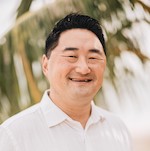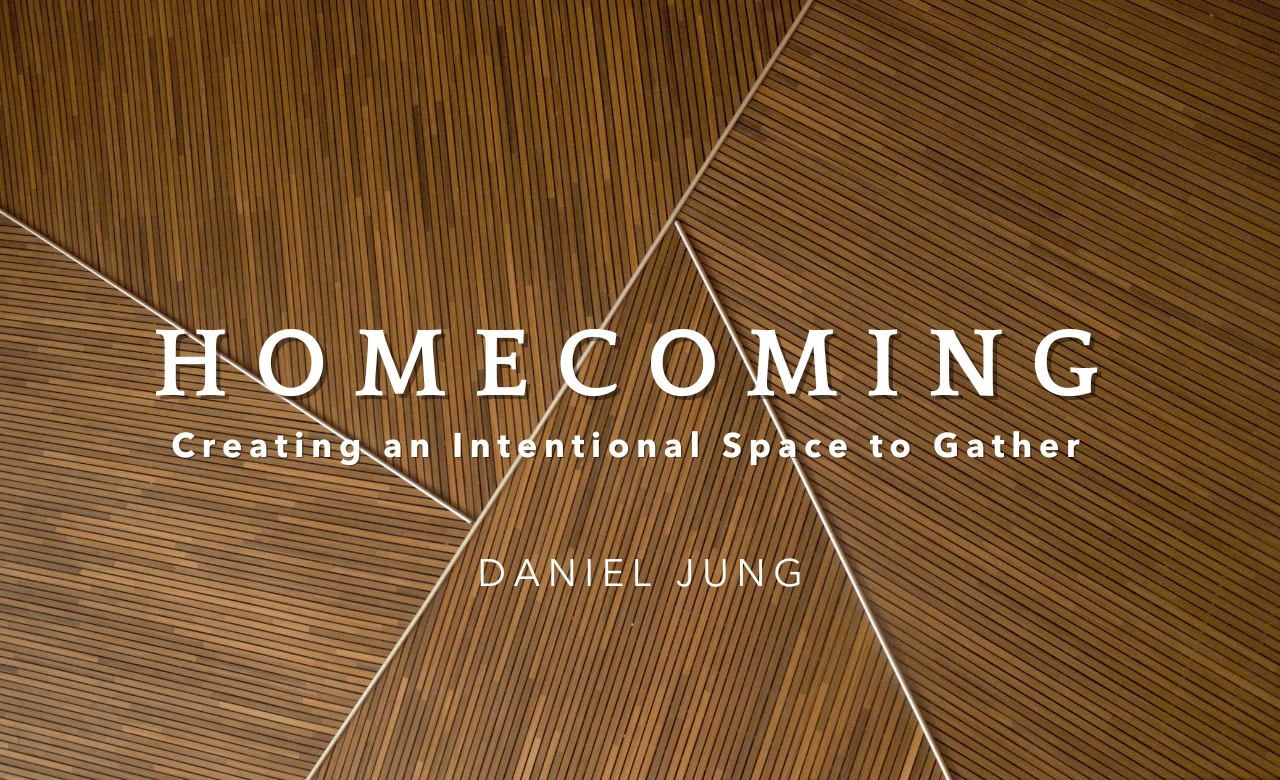Pier 39 is overrun by tourists but it still holds a very special place in my heart. Nestled in the northeast corner of the San Francisco Bay Peninsula, visitors mingle alongside hundreds of sea lions as the crisp ocean breeze fuses scents of kelp with local kettle corn, Ghirardelli chocolate, and clam chowder served in sourdough bread bowls. Pier 39 was never intended to be a functioning maritime port. Instead, it was commissioned to be a tourist’s delight, filled with shops, boutiques, restaurants, and street entertainment.
Towards the end of the pier, there is a specialty shop tucked away in one of the corner alleys that has quite possibly the greatest marketing pitch of all time. The store is called “Lefty’s” and they specialize in (you guessed it) left-handed merchandise. When my wife and I began dating over two decades ago, we visited Lefty’s and the moment we walked through the front doors, we were greeted by an enthusiastic store employee who promptly went through her sales pitch, as follows:
“Welcome to Lefty’s! We’re the Left-Hand Store and we have everything for the left-hander! Is anyone in your party left-handed?”
“Yes, I am,” my wife responded and raised the appropriate hand.
“Welcome home.”
Welcome home.
It’s a very powerful statement.
For left-handers, the world is filled with minor, yet constant reminders that they weren’t included in the planning team meeting. Whether it’s pen-smearings on their writing hand, looking for the proper corner of the table to sit before dining so as to avoid banging elbows with righties, or learning how to use equipment from an inverse perspective, left-handers are perpetually thrust into spaces of acclimatization, adjustments, and recalibrations. It’s a slow death by a thousand compromises. So to enter a space that has been designed for lefties is more than a simple welcome.
In a righty world, Lefty’s feels like home.
…
The Korean American Leadership Initiative (KALI) understands this need for homecoming all too well. It’s the reason we have been officially commissioned by the PCA’s Mission to North America with the goal to “cultivate servant-leaders from the Korean American community.” KALI’s leadership recognizes that for this lofty mission to become a reality, an intentional Korean American space is not just a footnote, it must be the thesis.
With this in mind, last November, KALI hosted its inaugural National Gathering on the campus of Covenant Theological Seminary in St. Louis, Missouri. Thirty-six Korean American pastors and ruling elders from California to New York spent four days and three nights in fellowship and communion, collectively learning how to navigate the righty-world in which we lead and minister.
The Gathering was our Lefty’s and we have concluded two specific truths about what it means for a Korean American teaching elders and ruling elders (TE/RE) to find their home within the PCA.
First, a homecoming is about friendships, not productivity.
From the onset of our meeting, KALI leadership emphasized that our time together was a “gathering” not a “conference.” This was an important distinction for the simple fact that conference attendance is often driven by two motivations: useful content and the prospect of expanding one’s pastoral network.
This is specifically true for Korean Americans – and most Asian Americans at large – as we often carry a burden to be productive at all costs. Our culture glorifies, even deifies, a good work ethic. We must always produce and our production must be quantifiably optimized through maximal utility. We attend conferences with this same approach. Our churches have given us time off and paid for our expenses so we better make the most of the conference by producing tangible results. The late Tim Keller (an honorary Asian American pastor) acutely summarizes this motivation by quoting Judith Shulevitz’s “eternal inner murmur of self-reproach.” The clock of eternal inner murmur is always ticking for Korean Americans.
Calling it a “gathering,” however, focused our energies, not on the event’s utility, but the quality of our potential relationships. TE Walter Lee (Harvest Church PCA) kicked off the opening plenary session with a powerful testimony that stressed the importance of friendships; for both the longevity of our ministry careers and the sustaining of our soul’s need to be in community with others. Setting the tone for the rest of the week, all the attendees seemed to be on a mission to promote real dialogue, confession, and friendship-based connections. From lunch conversations that went on so long that our food went cold, to late nights that reminded us we were once young, the gathering woke something up that we didn’t know existed. More than a handful of TEs confessed that they didn’t know they “needed this, until now.
This is a far cry from a conference mentality, where interactions with others are predictably surface level; ministry humble brags or congregation-comparing hubris contests cloaked in religiosity. By the end of the fourth day, we grasped a real sense of connection that will profoundly change the way we pastor our congregations and lead our families. At the very least, every single attendee can confidently attest that they have cultivated at least one friendship that will last the rest of our lives. We’ve learned in order to sustain fruitful longevity in our vocational ministry, personal friendships must be cultivated. There is no measure of productivity, no key performance indicator, that quantifies what that is worth.
Most importantly, a homecoming is about people, not places.
Personally, one of the more memorable touchstones of our gathering occurred after the event had already concluded. As a dad-joke-loving, Gen-X pastor, I have an unreasonable urge to get to the airport at least four hours before my flight. After the Gathering ended, I caught a ride to the St. Louis airport, breezed through the security checkpoint, and arrived at the gate just in time, with three hours and forty minutes to spare.
To my delight, I saw a fellow KALI National Gathering attendee, a TE from Capital Korean Presbytery, also waiting to catch his flight home. As God would ordain it, both our flights were delayed so we ended up sharing stories from our past. I told him about my problems with drug and alcohol addiction, and he shared a story that fully encapsulated our homecoming-themed time at the KALI National Gathering.
In his youth this TE had ambitions of being a full-time poker player. Details aside, he ended up packing his bags and making a run at his dream. But his luck ran out and it just wasn’t in the cards for him (my apologies for the pun, I had to do it). Down to his last option, and in a prodigal-like return, the TE came home, expecting his Korean father to disown him. Listening to the story, I expected this outcome too. The glaring disapproval of a Korean father is usually met with shame-fueled rage. It’s a predicament that makes up our worst nightmares. But to his surprise, instead of disavowing him or even scolding him, his father embraced him and welcomed him home.
“The gospel is in the hug,” we concluded, lips quivering, as tears ran down both our faces.
A homecoming is about people, not places. And right there, in the middle of St. Louis Lambert International Airport, after the official gathering had already concluded, two Korean American pastors embraced each other in front of Departure Gate A4. It’s a relationship that will continue long after we said our goodbyes and returned to our respective corners of the country.
We don’t know many of the details for our next National Gathering. We don’t know the speakers, the costs, or the registration specifics. We don’t even know the general location. But we know the aftereffects of this inaugural event are threefold: this Gathering was special, we can’t wait for the next one, and we believe that if our tangible goal is to promote more involvement within the denomination, people-driven friendships must be cultivated in spaces that provide a culture-embraced, gospel-driven sense of homecoming. Productivity and denominational service will then be a natural, willingly joyful, byproduct.
…
After the Lefty’s store employee welcomed us, my wife and I spent a few moments going our separate ways, checking out the goods on our own. I didn’t think we’d buy anything and we were simply going to enjoy the kitschy wares for sale. For me, I was just window shopping. But after ten minutes, I found my wife at the checkout line holding three pairs of left-handed scissors, two left-handed notebooks, and a graphic t-shirt that read “Left-Handedness is My Superpower.”
Welcome home.
It is a very powerful statement.
Daniel Jung is a graduate of Calvin Theological Seminary and a teaching elder in the Korean Northwest Presbytery. He lives in Northern California, where he serves as an associate pastor at Home of Christ in Cupertino. In his spare time, Daniel loves the 49ers, good coffee, and writing media reviews for Think Christian. You can find more of his work here.

